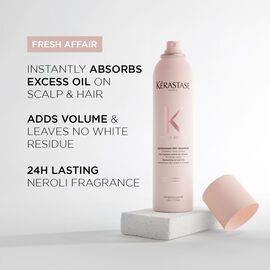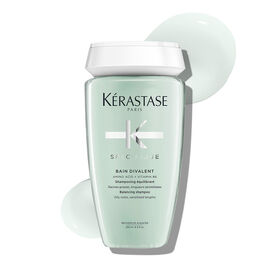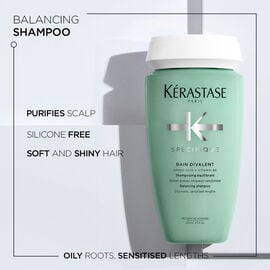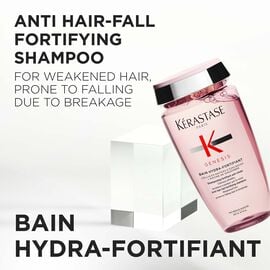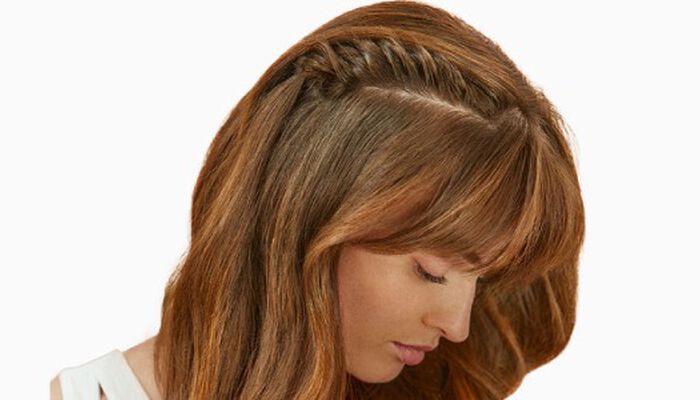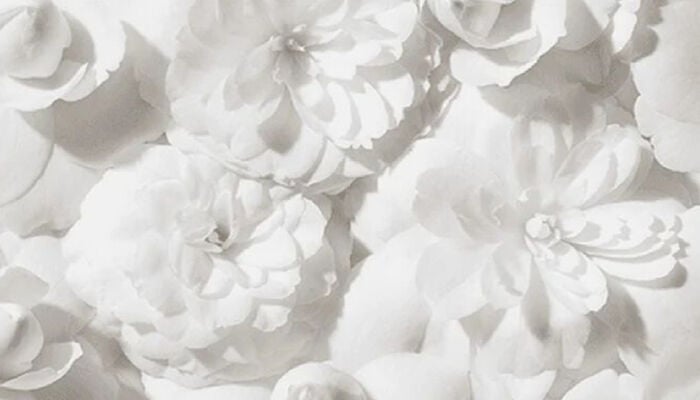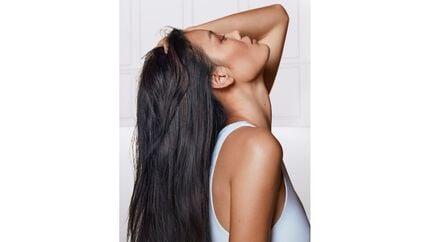
Ultimate Guide To Treating An Oily Scalp: Causes, Remedies, & Expert Tips
If you constantly find yourself wondering, "Why does my hair get oily so fast?" you're not alone. A very oily scalp can make your hair feel greasy and lifeless, even just a day after washing. But worry not! In this comprehensive guide, we cover everything from oily hair causes to the most effective oily scalp remedies and expert-approved ways to treat oily hair.
What Is An Oily Scalp?
An oily scalp is a condition where the scalp produces excess sebum (natural oil), often leading to greasy hair, clogged pores, and in some cases, an oily, flaky scalp. If not treated properly, it can also result in an oily and itchy scalp, making you feel uncomfortable and less confident.
Why Does The Scalp Get Oily?
Sebum plays a crucial role in keeping the scalp and hair moisturised. However, when the sebaceous glands become overactive, they produce more oil than necessary, creating a greasy scalp. The result? Hair that appears flat, heavy, and difficult to manage.
Common Oily Hair Causes
If you’re wondering "What is the reason of an oily scalp?" or "why my scalp is oily despite washing frequently?", here are a few contributing factors:
- Overactive Sebaceous Glands: Lead to excessive sebum production.
- Hormonal Changes: Puberty, pregnancy, or stress can trigger oiliness.
- Genetics: If oily hair runs in your family, you’re more likely to have it.
- Overwashing: Strips the scalp of natural oils, triggering more oil production.
- Harsh Hair Products: Disrupt the natural balance of your scalp.
- Environmental Factors: Pollution and humidity contribute to greasy build-up.
- Poor Diet: Oily, low-nutrient foods can also affect scalp health.
Effective Oily Scalp Remedies
Dealing with an oily scalp can feel frustrating, especially when it leaves your hair looking limp and greasy just a day after washing. Fortunately, there are simple and effective ways to treat oily hair and restore balance. Here are some oily scalp remedies that can help you feel fresher and more confident.
1. Cleanse Your Hair Well
A consistent cleansing routine is essential to treat an oily scalp. Use a gentle, sulphate-free shampoo specially formulated for oily or greasy scalps. These shampoos cleanse thoroughly without stripping the scalp of essential moisture, helping regulate excess sebum. If you're short on time, a dry shampoo is your go-to quick fix. It instantly absorbs oil and refreshes your roots, offering a fragrant, clean finish that lasts for hours - an ideal solution for greasy hair emergencies.
2. Avoid Conditioner On The Scalp
One common mistake is applying conditioner to the scalp. This can weigh your hair down and increase oiliness. Focus on applying conditioner only to the mid-lengths and ends to nourish dry strands without encouraging excess oil production on the scalp.
3. Limit Heat Styling
Heat-styling tools like straighteners and curling irons can trigger your scalp to produce more oil. Temporarily cut back on heat styling while finding the right oily scalp solution, and opt for air-drying or gentle styles instead.
4. Use Lightweight Styling Products
Heavy serums, creams, or waxes can build up and worsen a very oily scalp. Switch to lightweight, non-greasy styling products and consider looser hairstyles that allow your scalp to breathe and reduce oil accumulation.
5. Clean Hair Tools Regularly
Combs and brushes collect product residue, sebum, and dust. If not cleaned regularly, they can reintroduce oil to your scalp. Make it a habit to clean your brushes weekly to prevent oil build-up.
6. Watch Your Diet
Diet plays a crucial role in scalp health. High consumption of oily and spicy foods, which are low in nutrients, can aggravate an oily, flaky scalp. Instead, opt for a balanced diet rich in vitamins, omega-3s, and antioxidants.
7. Choose The Right Hair Oil
Even oily and itchy scalp types can benefit from hair oiling, but moderation is key. Use lightweight oils like argan or jojoba and wash them out after a few hours to avoid clogged pores or excess sebum. This helps maintain scalp health without adding to greasiness.
What To Do For Oily Scalp: Pro Tips
- Don't touch your hair frequently; it spreads oil.
- Avoid tight hairstyles; they can make your scalp sweat more.
- Rinse hair thoroughly to ensure no residue is left behind.
Your oily scalp doesn’t need to be a lifelong struggle. With these oily scalp remedies and the right oily hair treatment, you can say goodbye to greasy roots and hello to refreshed, balanced hair. Explore professional-grade hair care solutions from Kérastase to discover the best solution for greasy hair and unlock your healthiest hair yet. You can also head to the Kérastase Hair Quiz tool to discover the perfect routine tailored for you in just two minutes. This online professional hair quiz will analyse all your answers and preferences to recommend the right products for your hair concerns. So, what are you waiting for?
.jpg?sw=270&sfrm=jpg&q=80)
